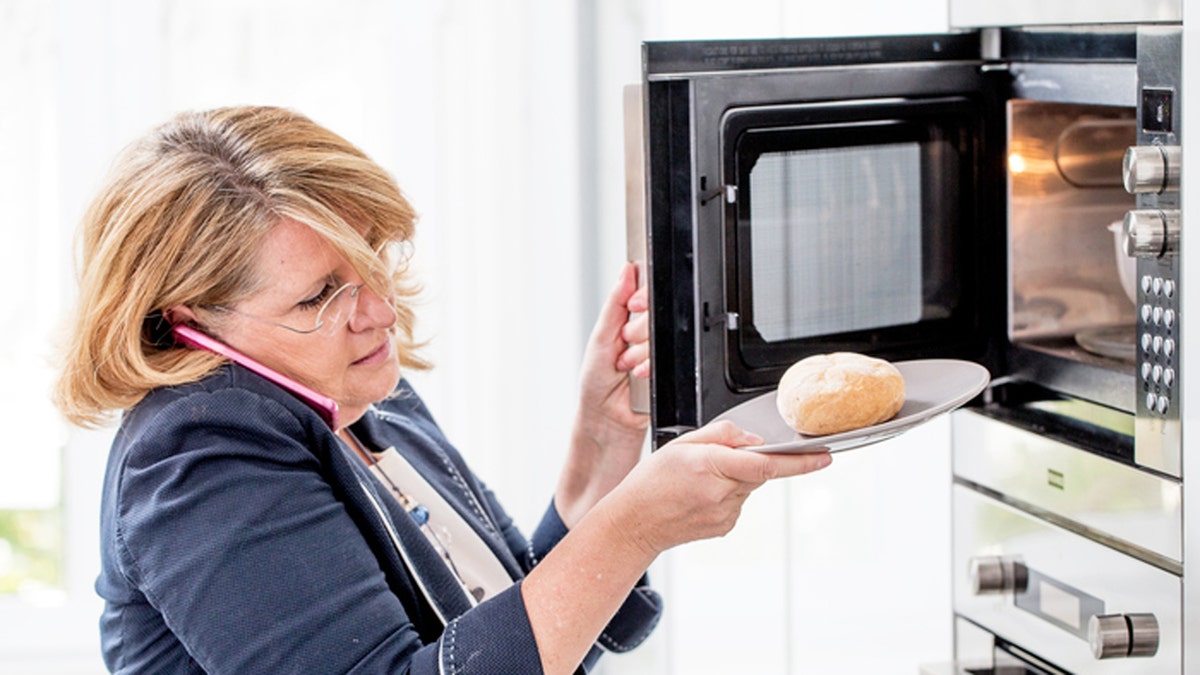
Businesswoman in the morning getting her Breakfast ready (Casarsa)
Most plastics are derived from petrochemicals like oil, natural gas, or coal, which makes the idea of heating food in plastic containers a pretty unappetizing thought.
But is it actually dangerous to microwave those leftovers in plastic containers?
The fear of microwaving food in plastic containers is linked to plasticizers, a substance typically added to plastic containers to give them their shape and flexibility. Two common plasticizers, bisphenol-A (BPA) and phthalates, are thought to be endocrine disruptors, which in high enough doses can interfere with the endocrine system.
These disruptions can lead to tumors, birth defects, and other developmental disorders. Plasticizers can leak into food when microwaved at high heat, but the Food and Drug Administration (FDA) identified this potential risk early on and, as a result, food-grade plastics are subject to rigorous regulations.
Manufacturers are forced to adhere to these specifications, or else their products will not be approved for microwave use.
Plastic containers that pass FDA inspection are allowed to label their products “microwave safe,” or display a symbol on their packaging communicating that idea.
Good Housekeeping conducted an experiment microwaving food in 31 different plastic containers, and found that almost none of the food emerged with any plastic residue. That being said, not all plastic containers are designed to handle the heat of the microwave. Manufacturers test their products based on their intended use, therefore a plastic Chinese takeout container doesn’t face the same stringent FDA evaluation, and may melt if microwaved at a high heat.
To be avoid any risk, only use plastic containers that are labeled as “microwave safe,” and avoid using older containers that have been cracked or scratched because these are more likely to leach plastics into food. Most takeout containers, water bottles, or condiment squeeze bottles are not designed to be placed in a microwave.
